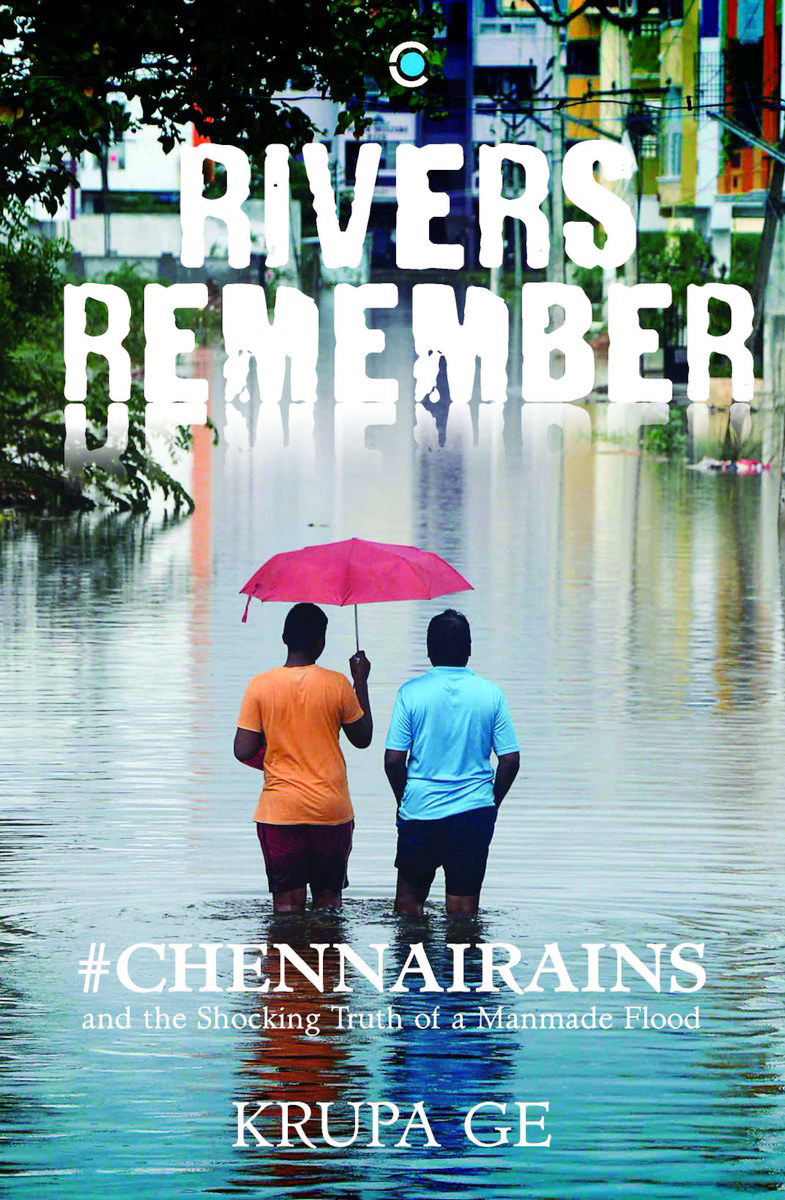Registered with the Registrar of Newspapers for India under R.N.I 53640/91
Vol. XXIX No. 11, September 16-30, 2019
When there was water everywhere
Varsha Venugopal
Krupa GE’s book Rivers Remember is a painstakingly researched work stemming from the author’s horrific experience of the 2015 Chennai floods. Published by Context (an imprint of Westland Publications), the book not only investigates the blunders that effectively doomed the city during the 2015 floods, but also places the disaster within a deeply personal perspective that follows the history of Chennai’s water bodies and narrates the story of those affected.
The book opens with an account of the aftermath of the floods in her parents’ home. Krupa writes, “Everything looks black, as if someone brought a lorry full of sludge from a gutter and meticulously smeared every single item in the house with it… No piece of furniture is in its place. The gas cylinder has moved out of the kitchen and is next to the entrance. The fridge is on its side. The washing machine upside down. And the house stinks.” (Pg. 15).
Seeking answers for the losses endured, the book dissects the disaster skillfully, placing the responsibility at the feet of the state administration and the real estate industry for the city’s unplanned expansion that encroaches our complex network of marshes and water bodies. The story of Dr. Bala Kumari is particularly heart-stopping. Her KS Hospital in Velachery was unassumingly built on a plot where there had once been a water body, says the book. “During the first monsoon after construction work on the hospital had started, Dr. Bala saw lotuses blooming in the ground next to her plot. That is when she realised that she had been sold a piece of land where a lake had once stood.” (Pg. 69) The hospital would be wrecked during the floods, with four patients due to deliver trapped inside along with Dr. Bala. Help would come later, but the experience would remain with Dr. Bala as ‘the worst day of her life.’

Rivers Remember
Krupa diligently collates first-hand information from government documents and archival material, journalists and other stakeholders as well as anecdotes from the people of Chennai to piece together an explanation for the floods.
The book points out the shocking inaction of the administration in the face of an impending downpour – Chembarambakkam Reservoir was left as a ticking time bomb with dangerously high levels of water, for instance. The apathy is even more appalling when the book reveals that TN’s SDMA (State Disaster Management Authority) had met exactly once in 2013 before the 2015 floods – and not even once, during the floods. The book repeatedly carries references to serious oversights, driving home the bleak truth that the 2015 floods was a disaster that could have been greatly mitigated, if not completely avoided.
Krupa’s genius lies in packaging all this heavy information in a digestible format amidst loving accounts of the city, it’s history and its people. She takes the reader back in time to follow the story of Chennai’s rivers. For instance, the chapter ‘Memories of Kosasthalaiyar’ proudly points out that the river’s bank contains historical artefacts that date back to between 2BCE and 3CE. The narrative style cleverly guides us to view the present with the context of the past; it educates us, for example, that the Kosasthalaiyar reaches the sea via Ennore Creek’s backwaters, which itself is at risk today.
‘Rivers Remember’ is a book that every Chennai vaasi must read – Krupa’s fierce love for the city shines through its pages. It leaves one feeling uneasy, with the author’s meticulous, data-backed research warning us that the root causes of the flood still hang over our heads like the Sword of Damocles. “Let me tell you now once and for all so when it happens to you – and happen it will, for our cities are not flood resilient – you can be prepared. Floods are the new norm, everywhere in the world,” writes Krupa. One suspects that we would do well to heed her words and figure out ways to act, instead of giving into the apathy of short-term memory.

